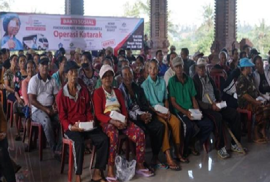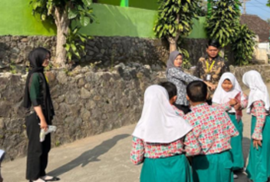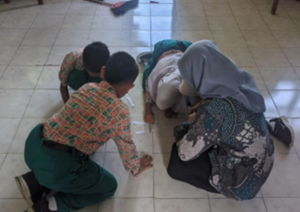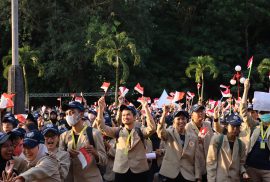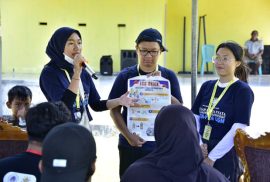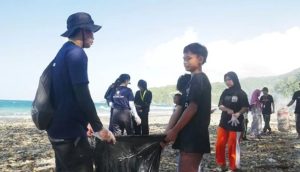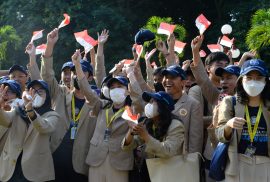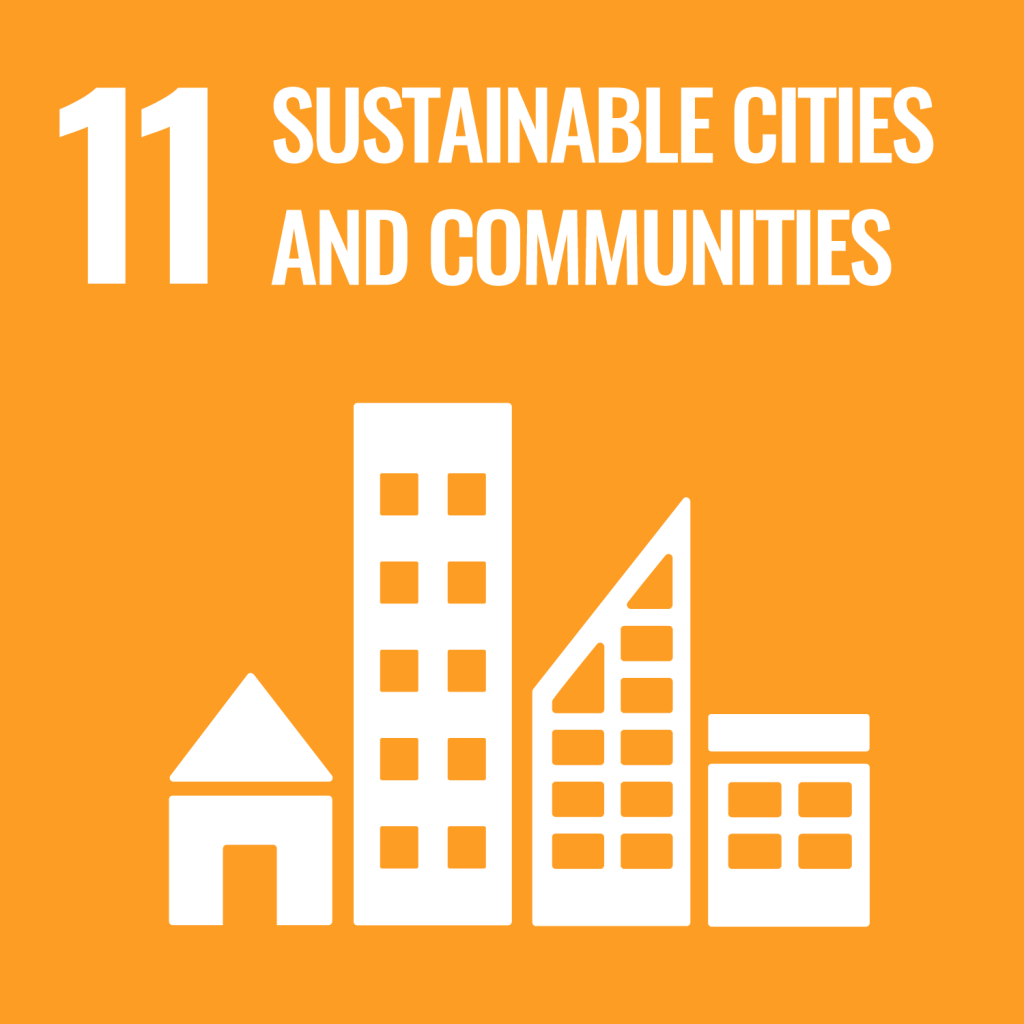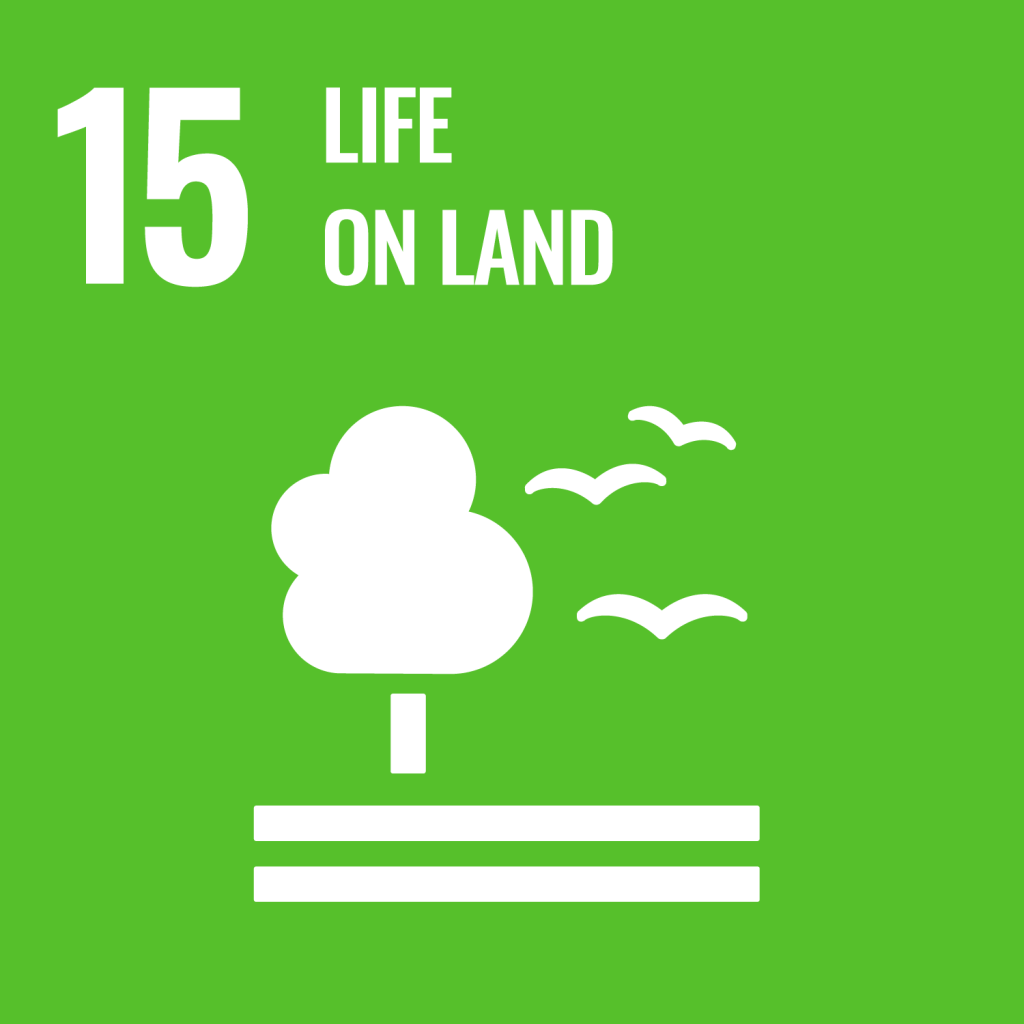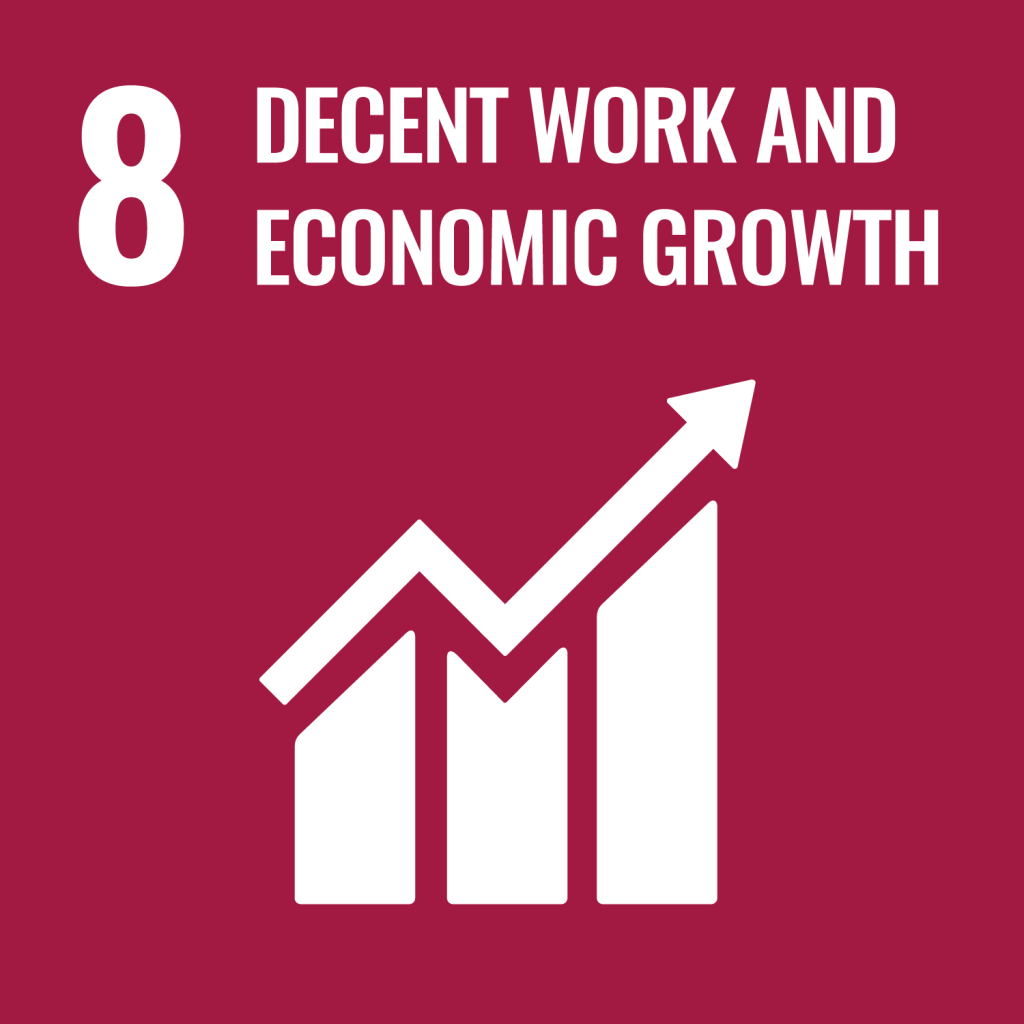The community of Baha Village attending Free Healthcare Event organized by UGM KKN-PPM students and John Fawcett Foundation
The KKN-PPM students from Universitas Gadjah Mada (UGM), performing student community service in the Mengwi area of Bali, collaborated with the John Fawcett Foundation (JFF) to organize a series of free eye exams, glasses distribution, and cataract surgeries for the community of Baha Village on July 16th, 2024. Supported by various stakeholders, including the presence of the Badung Regency Secretary, this initiative is part of a broader effort to improve eye health, particularly for elderly patients. This program is also aligned with the United Nations’ Sustainable Development Goal (SDG) 3, which focuses on ensuring good health and well-being for all, particularly addressing health issues in older populations.
Providing Free Healthcare to the Community
The event served 220 residents from Desa Baha and surrounding areas, offering free eye exams and glasses to those in need. After undergoing the initial screenings, ten individuals were identified as requiring cataract surgery, which was performed free of charge by the medical team from JFF. In addition to the surgery, patients also received post-operative care at Wantilan Pura Dalem, Desa Baha, ensuring comprehensive treatment and follow-up support.
Angelica Callysta Viera, the coordinator of the KKN-PPM team in Mengwi, expressed her gratitude for the collaboration. “We are extremely grateful to JFF for facilitating the free cataract surgeries, and our hope is that this program can improve the quality of life for the local community,” she shared.
A Long-term Impact on Community Health
Echoing Angelica’s sentiments, Nengah Sariase, the Screening Coordinator for JFF, added, “We are pleased to collaborate on this social service activity, and we hope that the cataract treatment program can continue in the future.” The collaborative spirit of this initiative highlights the importance of partnerships in driving long-term health improvements in underserved communities.
The event met high enthusiasm and appreciation from the local residents of Desa Baha. One of the cataract surgery patients, Ibu Uripah, expressed her heartfelt thanks, saying, “I feel relieved after the surgery. This program is wonderful, and the service was very friendly. Thank you to JFF and KKN UGM.”
A Lasting Collaboration for Health Improvement
This event is expected to begin an ongoing partnership between the KKN-PPM UGM team and the John Fawcett Foundation, focusing on sustainable healthcare improvements for Desa Baha and surrounding communities. By continuing such programs, both organizations aim to create lasting positive impacts on the health and well-being of the population, particularly for the elderly, and contribute to the achievement of SDG 3, which seeks to ensure access to essential health services and promote well-being at all ages.
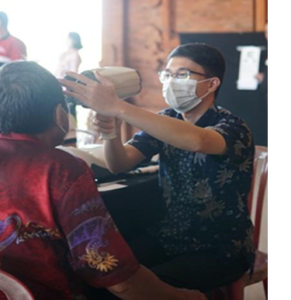 |
The healthcare professional is examining one of the patients from Baha Village
Contributing to SDG 3: Good Health and Well-Being
This initiative directly supports SDG 3 by improving eye health and providing access to crucial healthcare services for a vulnerable segment of the population. By offering free medical treatments, including cataract surgeries and follow-up care, the program addresses critical health needs and enhances the quality of life for elderly residents. The focus on accessible healthcare and well-being is a key step towards building a healthier, more inclusive society.
Invitation for Global Participation
UGM invites international students, especially those studying healthcare, social sciences, and community development, to engage in future KKN-PPM programs. Students will be able to work with local communities and global partners to improve health outcomes and promote sustainable development. Professors are also welcome to visit UGM to explore the impact of such programs and guide students in contributing to life-changing initiatives.
Tags: SDGS 1:Tanpa Kemiskinan SDGS 17: Kemitraan untuk mencapai tujuan SDGS 3 : Kehidupan Sehat dan Sejahtera SDGS 5 : SDG 5: Ekosistem daratan
Author: bil
Contributor: Muh. Bagus Kurniawan
Photos: Gifto Ramadha

